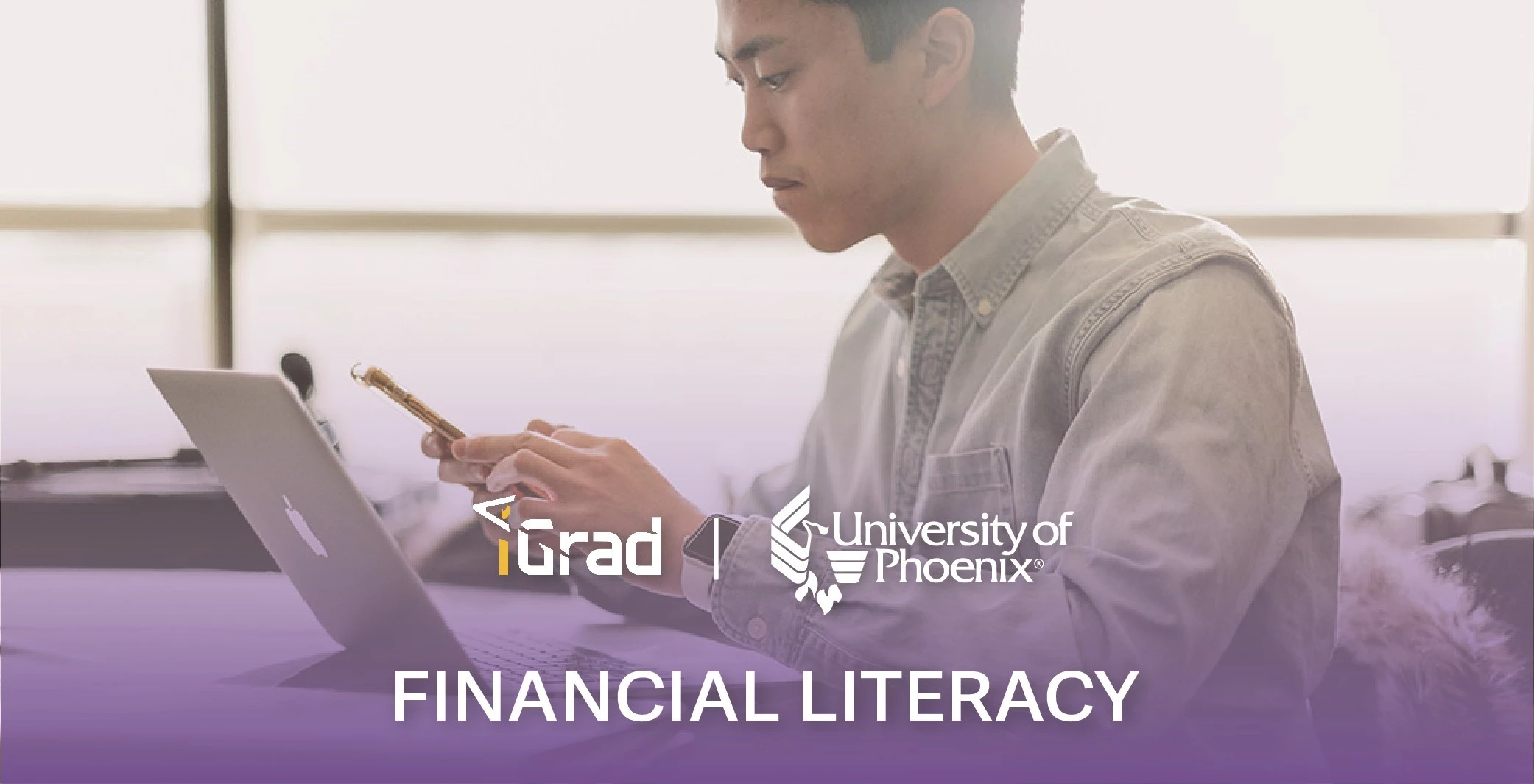Universities play a crucial role in preparing students for the impact of high interest rates and inflation on student loans.
With over two-thirds of current students taking out student loans, and current student loan debt sitting at $1.75 trillion, getting students prepared for high interest rates and inflation is critical.1
As the cost of higher education continues to rise, more and more students are forced to take out loans to finance their education. However, the increasing cost of living, coupled with high interest rates and inflation, is making it extremely difficult for students to repay their loans.2
This is where universities must step in to help.
Financial Literacy Education
One of the best ways universities can prepare students for the impact of high interest rates and inflation on student loans is by providing proper financial literacy education.
Financial literacy education can help students understand the terms and conditions of their loans, as well as how to manage their debt and make informed financial decisions.
Universities can provide financial literacy education by offering direct workshops and seminars that cover all of the basics of financial knowledge while also teaching them how to prepare for the future.
These workshops can be led by financial experts or professionals, and provide students with hands-on experience and practical tips for managing their finances.
Universities can also collaborate with specialized organizations or financial institutions to provide students with advanced financial literacy education.
This can include inviting speakers, hosting groups, or building programs that teach students about budgeting, saving, and investing.
Universities can also provide financial literacy education through online resources, such as webinars and e-learning modules. These resources can be accessed by students at any time and can provide them with information and guidance on how to manage their finances.
Read More: How to Better Prepare Students for Uncertain Times With Financial Wellness Programs
Flexible Repayment Options
Another way universities can prepare students for the impact of high interest rates and inflation on student loans is by offering flexible repayment options. There are a lot of ways universities can create solutions to help students.
- Income-driven repayment plans: This allows students to repay their loans at a rate that is based on their income. This can help students who may be struggling to repay their loans due to high interest rates and inflation.3
- Loan consolidation: This allows students to combine multiple loans into one, potentially reducing the overall interest rate and monthly payments. This can help students manage their debt more effectively, and make it easier for them to repay their loans.
- Low-interest loans: Universities can take a proactive approach and help their students by working with lenders to provide low-interest loans. This can help reduce the overall cost of borrowing and ease the stress of repaying loans.
- Student loan repayment assistance: This assistance can include access to loan forgiveness programs, repayment plans, and debt consolidation services. This can help students stay successful with their financial wellness after graduation.
These types of services can help students manage their debt more effectively and make it easier for them to pay off their student loans.
Incentives and Rewards
Universities could offer incentives and rewards to encourage students to pay off their student loans on time.
These incentives and rewards could include discounts on tuition, reduced interest rates, or even the ability to graduate early.
By providing these types of incentives, universities can help students reduce the amount of interest they have to pay on their student loans and make it easier for them to pay off their loans on time.
Scholarships and Grants
Universities can spend more resources on offering scholarships and grants. Scholarships and grants do not need to be repaid, and thus can help reduce the overall cost of borrowing for students.
Universities can offer merit-based scholarships for students who excel academically or in extracurricular activities, or need-based scholarships for students with financial need.
Universities can also create partnerships with organizations, businesses, or foundations to create scholarships or grants.
These organizations may offer scholarships or grants to students who meet certain criteria, such as being from a specific geographic area, majoring in a specific field, or having a specific background or experience.
The more options there are for students to receive financial assistance, the better.4
Career Services
Providing career services for students is one of the best ways universities can help handle tough student loans.
By connecting students with employers and internship opportunities, universities can help students find well-paying jobs after graduation that will allow them to repay their loans more easily.
Universities should also provide students with access to part-time employment opportunities. These jobs can help students earn some extra money to help pay off their student loans.
Universities should create job postings for students looking for part-time work and should also provide resources to help students find jobs that are suitable for their skills and interests.
Use The Proper Tools
As you can see, universities have to step up and take ownership of the critical role they play in preparing students for the impact of high interest rates and inflation on student loans.5
With the right support and resources, students can be empowered to manage their debt and achieve their educational and career goals.
Using effective tools can make this process a lot easier.
iGrad believes that providing students with debt letters, in addition to counseling and financial literacy education, can aid in making more informed financial choices and decrease the probability of graduates facing overwhelming student loan debt.
As experts in the field of financial education and increasing financial wellness, iGrad offers award-winning financial literacy solutions.
The tools are in your hands. Now let’s get them into the hands of the students.
1 - https://www.weforum.org/agenda/2022/08/americans-owe-1-75-trillion-in-student-debt/
2 - https://www.investopedia.com/inflation-affects-student-loans-5323591#:~:text=If%20you're%20lucky%20enough,on%20how%20much%20they%20earn.
3 - https://studentaid.gov/idr/
4 - https://research.collegeboard.org/trends/student-aid
5 - https://www.yahoo.com/entertainment/amid-high-interest-rates-inflation-174653046.html








